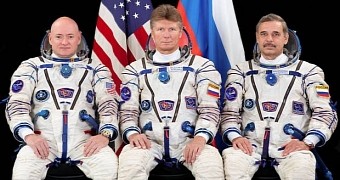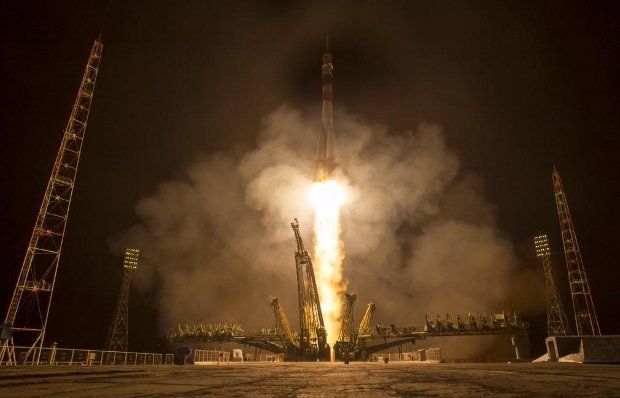Just hours ago, NASA astronaut Scott Kelly and Russian cosmonaut Mikhail Kornienko boarded the International Space Station after having left Earth on Friday, March 27, at precisely 3:42 p.m. EDT, not one minute sooner or later than planned.
Unlike the other crews thus far launched into our planet's orbit, who all returned to Earth after a few months, NASA's Scott Kelly and Roscosmos' Mikhail Kornienko will spend almost one year aboard the International Space Station.
During this time, they will be closely monitored to see how their bodies respond and adapt to space conditions. The focus will be on their muscles' and their bones' reaction to the low-gravity environment they will be exposed to while aboard the habitable satellite.
The launch went smoothly, NASA says
As mentioned, Scott Kelly and Mikhail Kornienko embarked on their journey to the International Space Station Friday, March 27, at 3:42 EDT. They Soyuz spacecraft carrying them launched from the Baikonur Cosmodrome in Kazakhstan.
The one-year crew left Earth together with one other space explorer, Roscosmos cosmonaut Gennady Padalka, who will only spend 6 months aboard the International Space Station. The trip to the satellite lasted 5 hours and 51 minutes.
When the hatches finally opened about 2 hours after docking, the astronauts were greeted by Expedition 43 Commander Terry Virts of NASA, and flight engineers Samantha Cristoforetti of ESA and Anton Shkaplerov of Roscosmos.
The importance of this one-year space mission
Scott Kelly's and Mikhail Kornienko's one-year stay aboard the International Space Station will provide valuable data that scientists need to plan missions to other planets in our cosmic neighborhood, maybe even beyond the Solar System.
Thus, the goal is to determine how space conditions affect the human body and try to find ways to keep astronauts safe while in space. Apart from monitoring their overall health condition, scientists on the ground will also keep tabs on the astronauts' mental wellbeing.
“Data from Kelly and Kornienko’s 342-day expedition will be used to determine whether there are ways to further reduce the risks on future long-duration missions necessary for deep space missions,” NASA explained in a statement.

 14 DAY TRIAL //
14 DAY TRIAL // 

